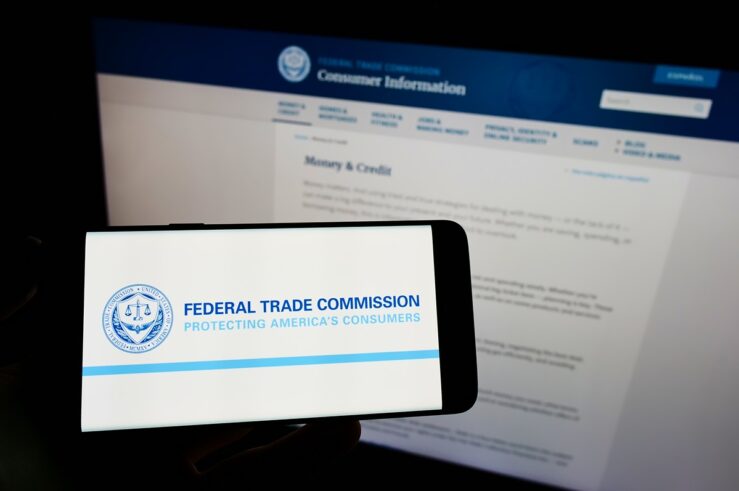This article is a part of the Free to Choose Symposium symposium.
At the outset let me thank our hosts for inviting me to participate in what I have come to think of as Truth On The Markets’ annual symposium on topics of particular interest to me. Last year at roughly this same time, TOTM sponsored a symposium on what many surely regarded as an obscure topic, but this year’s subject—the role, if any behavioral economics should play in regulatory policy—should be of much wider interest. Although this topic has a connection to the consumer credit industry (a connection that I plan to explore in a comment on Richard’s post from yesterday), I want to start with the more general question of whether we should be concerned about any effort on the part of the Obama Administration to incorporate the lessons of behavioral economics in regulatory policy. Recognizing that I may be putting invitations to future TOTM symposia at risk by saying so, I think that the answer to this question is no.
The invitation to participate in this symposium sets an ambitious agenda. Indeed, there appear to be as many questions in the invitation as there are issues in the typical law school exam. I, however, want to focus on the premise: “Behavioral legal perspectives appear to be gaining traction in the current regulatory landscape, evidenced by an increasing drive to influence or outright constrain individual choice.” This statement links two concepts—“behavioral legal perspectives” and “an increasing drive to influence or outright constrain individual choice”—that may be related or separate. That is, if we accept that the last few years have seen “an increasing drive to influence or outright constrain individual choice,” is it the case that this drive reflects “behavioral legal perspectives”?
Now, I cannot hope to cover the full sweep of legislation enacted into law since President Obama was elected. But I am familiar with much of the content of the law directed at the revolving credit and payment card industry. And although the CARD Act and the Dodd/Frank Financial Reform Act contain a number of provisions that can be said to “influence or outright constrain individual choice,” relatively few of the provisions appear to reflect “behavioral legal perspectives.” As Lacey Plache and I pointed on it a piece on the CARD Act, most of the provisions in the CARD Act seem to reflect traditionally paternalistic views about market interaction rather than anything derived from behavioral economics. And although predecessors to the Dodd/Frank Financial Reform Act contained some aggressively behavioralist propoasals (e.g., the so-called plain vanilla provisions), those provisions did not, on the whole, make it into the final bill (though there is some question as to whether the enforcement tools given to the CFPB could be used to accomplish the same end).
Indeed, at the moment, it is not clear how much behavioral economics actually informs regulatory policy under President Obama or whether this influence is greater under President Obama than it was under President Bush or President Clinton. Just days after assuming office, President Obama repealed certain executive orders that had been issued during the Bush Administration to govern the regulatory process. At the same time, the President issued a memo charging the Director of OMB to present him with a report outlining recommendations for a new Executive Order for Federal regulatory review. Although the President’s memo directed OMB to issue that report within 100 days, OMB was about as timely with its response to the President as I was to the deadline for submissions set by our hosts.
The primary evidence that behavioral economics is informing regulatory policy under President Obama comes from the 2009 OIRA Report to Congress on the Benefits and Costs of Federal Regulations and Unfunded Mandates on State, Local, and Tribal Entities. That report briefly summarizes the “central findings” of the efforts to link psychology to economic models in a list of bullet points.
Many of the participants in this symposium would likely quibble with some of the particulars, but the OIRA list reads very much like the summaries of the behavioral literature posted here over the last two days. The first line of the first bullet contains the entirely unremarkable assertion that “[p]eople often use heuristics, or mental short-cuts, with which to assess risks.” And the specific recommendations that follow this list seem unobjectionable:
1) using disclosure as a regulatory tool; 2) simplifying choices through sensible default rules and reduced complexity; 3) increasing the salience of certain factors or variables; and 4) promoting desirable social norms (for example, in favor of reduced smoking or increased safety on the highways).
Nevertheless, the Obama Administration has faced withering criticism for even this modest foray into behavioral economics. Andrew Ferguson’s piece in the Weekly Standard makes a number of good points about the limitations of behavioral economics (in addition to incorporating a sly allusion to a classic Monty Python skit).
But based on this list, it seems premature to hammer the President for embracing behavioral economics to “smuggl[e] in a normative and political judgment under the cloak of disinterested science” or to equate behavioral economics as currently practiced within OIRA to “conventional 1960s liberalism.”
Now, the forthcoming report to the President on recommendations for modification of the rule making process may go beyond this modest proposal. But at the moment, the President and his counselors seem to be suggesting that Government efforts to influence behavior should attempt to keep pace with corresponding developments in the private sector. If that means more public service announcements like this, and fewer ones like this, I am hard pressed to see any basis for objection.




